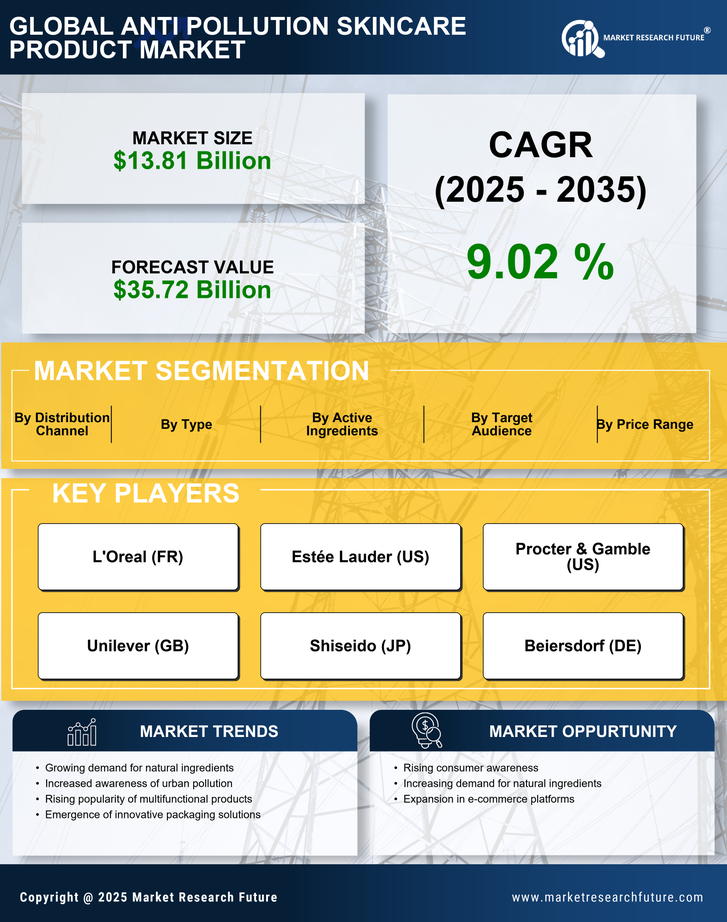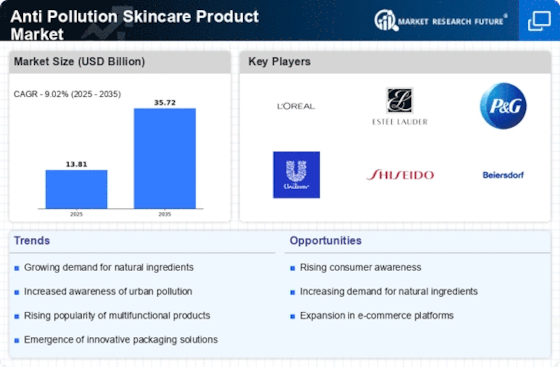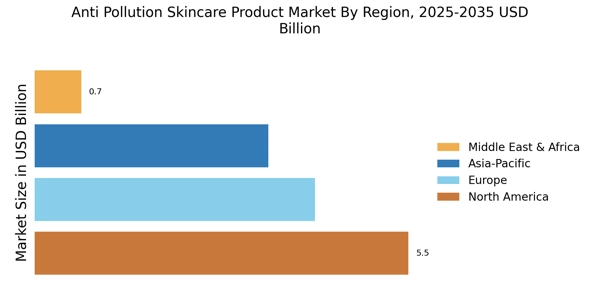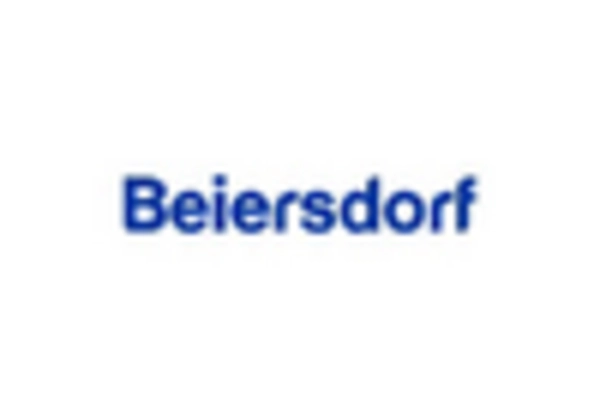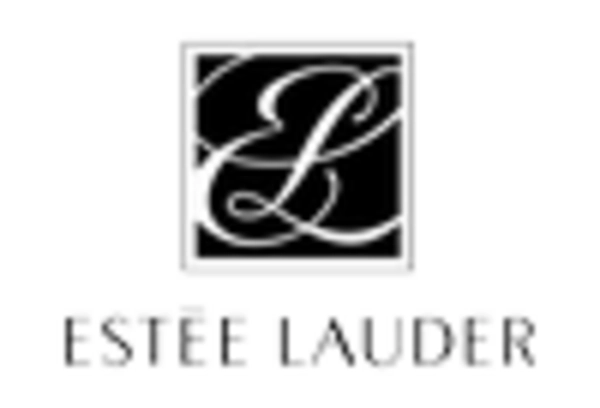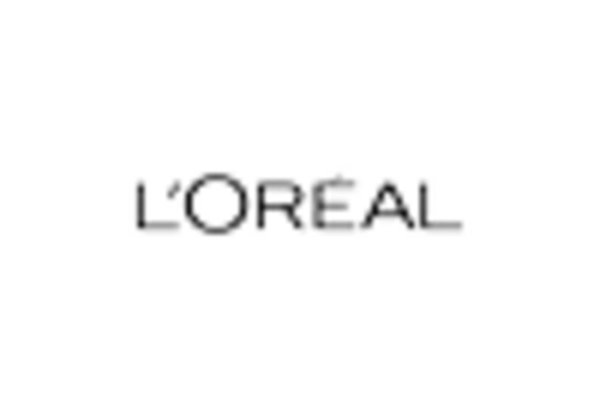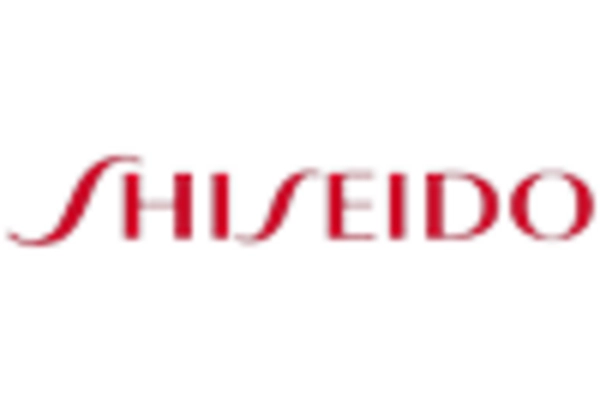Increasing Urbanization
The trend of increasing urbanization appears to be a significant driver for the Anti Pollution Skincare Product Market. As more individuals migrate to urban areas, they are exposed to higher levels of pollution, which can adversely affect skin health. This urban lifestyle often leads to increased demand for skincare products that can combat the effects of environmental stressors. According to recent data, urban populations are projected to reach 68% by 2050, suggesting a growing market for anti-pollution skincare solutions. Consumers are becoming more aware of the detrimental effects of pollution on their skin, leading to a surge in demand for products that offer protective benefits. Consequently, brands are innovating to create formulations that address these concerns, thereby expanding their market presence.
Rising Awareness of Skin Health
There is a notable rise in awareness regarding skin health, which is likely to propel the Anti Pollution Skincare Product Market. Consumers are increasingly educated about the impact of environmental factors on skin conditions, such as premature aging and irritation. This heightened awareness is driving individuals to seek products that not only cleanse but also protect against pollutants. Market data indicates that the skincare segment focusing on anti-pollution has seen a growth rate of approximately 15% annually. As consumers prioritize their skin health, brands are responding by developing targeted solutions that incorporate antioxidants and other protective ingredients. This trend suggests a shift in consumer behavior towards proactive skincare, further fueling the demand for anti-pollution products.
Regulatory Support for Clean Beauty
Regulatory support for clean beauty initiatives is emerging as a crucial driver for the Anti Pollution Skincare Product Market. Governments and regulatory bodies are increasingly advocating for transparency in ingredient sourcing and product formulation, which aligns with consumer demand for safer, environmentally friendly products. This regulatory landscape encourages brands to innovate and develop anti-pollution skincare solutions that meet stringent safety standards. Data suggests that the clean beauty market is expected to grow at a compound annual growth rate of 10% over the next five years. As regulations evolve, companies are likely to invest in research and development to create effective anti-pollution products that comply with these guidelines, thus enhancing their market competitiveness.
Demand for Multi-Functional Products
The demand for multi-functional skincare products is likely to be a significant driver in the Anti Pollution Skincare Product Market. Consumers are increasingly seeking products that offer multiple benefits, such as hydration, protection, and anti-aging properties, all in one formulation. This trend is indicative of a broader shift towards convenience in skincare routines, where individuals prefer fewer products that deliver comprehensive results. Market analysis reveals that multi-functional skincare products have gained a substantial share, with projections indicating a growth rate of around 12% annually. As brands respond to this demand by formulating innovative anti-pollution products that cater to diverse skin needs, the market is expected to expand further, reflecting changing consumer preferences.
Influence of Social Media and Beauty Trends
The influence of social media and evolving beauty trends appears to be a pivotal factor in shaping the Anti Pollution Skincare Product Market. Platforms such as Instagram and TikTok have become vital channels for beauty influencers to promote skincare routines that emphasize the importance of protecting skin from pollution. This digital landscape fosters a culture of sharing and discovery, leading to increased consumer interest in anti-pollution products. Recent statistics indicate that beauty-related content on social media has seen engagement rates soar, with anti-pollution products often highlighted as essential in modern skincare regimens. As consumers are exposed to these trends, they are more likely to invest in products that align with their values of health and wellness, thereby driving market growth.
